The Mariachi tradition in the history of Mexico: revolution and Mexican cowboys
Vídeo: El traje de gala
Log into your Vimeo account to see the video.
The Mariachi music is the soundtrack of all festive occasions in the lives of Mexicans, from baptism to burial. Well, even after you die, since it’s a common tradition to hire a Mariachi band to play the deceased their favorite tunes when you visit them at the graveyard on the Day of the Death, El Día de Muertos.
Most people associate Mariachi musicians with the traditional Mariachi suit ‘El traje de Charro’, but the tradition is seen in many other variations from other states of Mexico.
Since CDMX appears to act as a magnet to people from all over the country, this is also reflected in the different attire and styles that you see on Sundays at Plaza Garibaldi.
In the video Alejandro from the Mariachi School Ollín Yolitzli tells about the origins and use of the 'El traje de Charro'.
Vocabulario
- Sustantivos
traje m
hacendado m
tierra f
calzón de manta m
huarache f
paja f -
boda f
quince años
serenata f
verbos
vestir
tocar
evolucionar -
cambiar
portar = llevar
adjetivos y otros
vestido
de lujo
a diario
Mexican cowboys and Charro movies
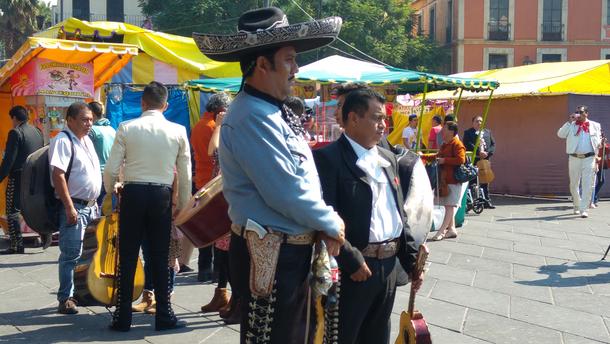
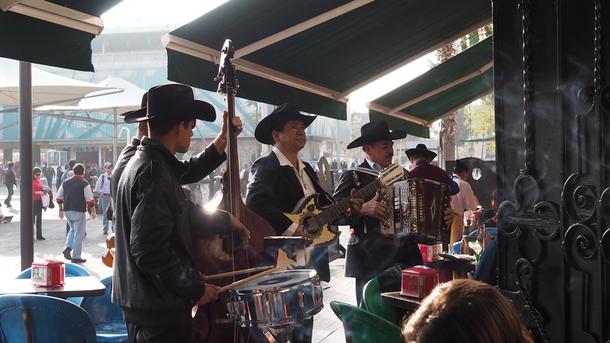
The genres often played by the Mariachi musicians are called Rancheras and Boleros and arose more or less at the same time, but while Bolero music is considered a more sophisticated genre and is associated with urban life, the Ranchera genre is associated with rural life.
Ranchera music emerged in the period following the Mexican Revolution (1910-1920). The genre's heyday was in the 1940s, 1950s, when it saw the light of day along with a wave of Charro films, a kind of Mexican cowboy movie that romantizied the simple country life. The films were very popular among the growing urban population, especially the generation born in the city themselves, but with a family rooted in the rural population.
The Mariachi tradition historically
The Mariachi tradition has it origins in the state of Guadalajara, but the phenomenon is met everywhere in Mexico. The Mariachi tradition in its present form is not quite as old as one might think considering the importance it holds in Mexican culture.
There are various theories about the origins of the name ‘mariachi’. Some suggests that the word 'mariachi' has ancient roots and comes from Náhuatl, (that the - che is the same ending as in Malinche), while others believe that the name must come from French ‘marriage’, wedding, since the orchestras also played at weddings.
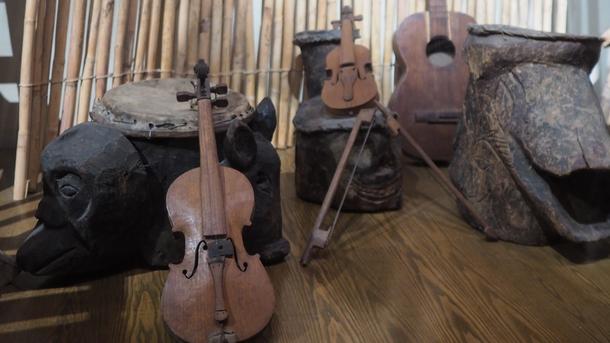
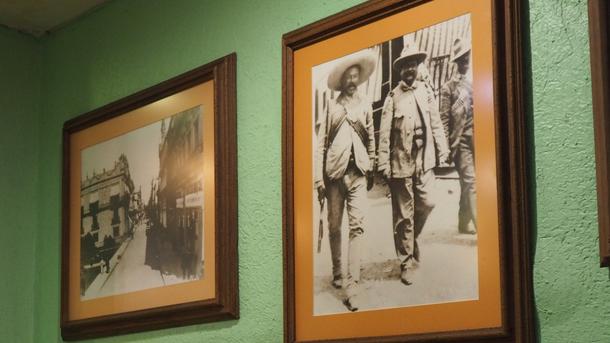
How much did you understand?:
1)Los Mariachis llevan el traje de gala todos los días
Sólo lo llevan cuando trabajan, en La Plaza Garibaldi o para eventos especiales
2)Sólo hay un tipo de música Mariachi
Hay varios tipos de música mariachi. Los estilos más comunes se llaman Ranchera y Bolero
3)El traje de los Mariachis se evolucionó con la película charra
4)La tradición mariachi nació en Guadalajara
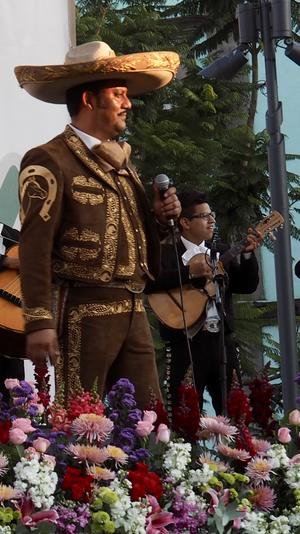
Más sobre...
The term 'Mariachi' covers different styles of music and ways of dressing.
In the article El traje de charro y la nacionalidad mexicana son opcionales para ser mariachiyou'll find a lot of variations: from Japanese Mariachi Samorai to the women's orchestra Mariachi Femenil, appearing in jeans and pink t-shirts. Or you can hear the theme from the Game of Thrones (Juego de Tronos) played by Mariachi Orchestra.
The Mariachi tradition in anthropological perspective To read more about Mariachi music in anthropological perspective see: Pedelty, Mark: Musical Ritual in Mexico City, 2004 University of Texas Press
